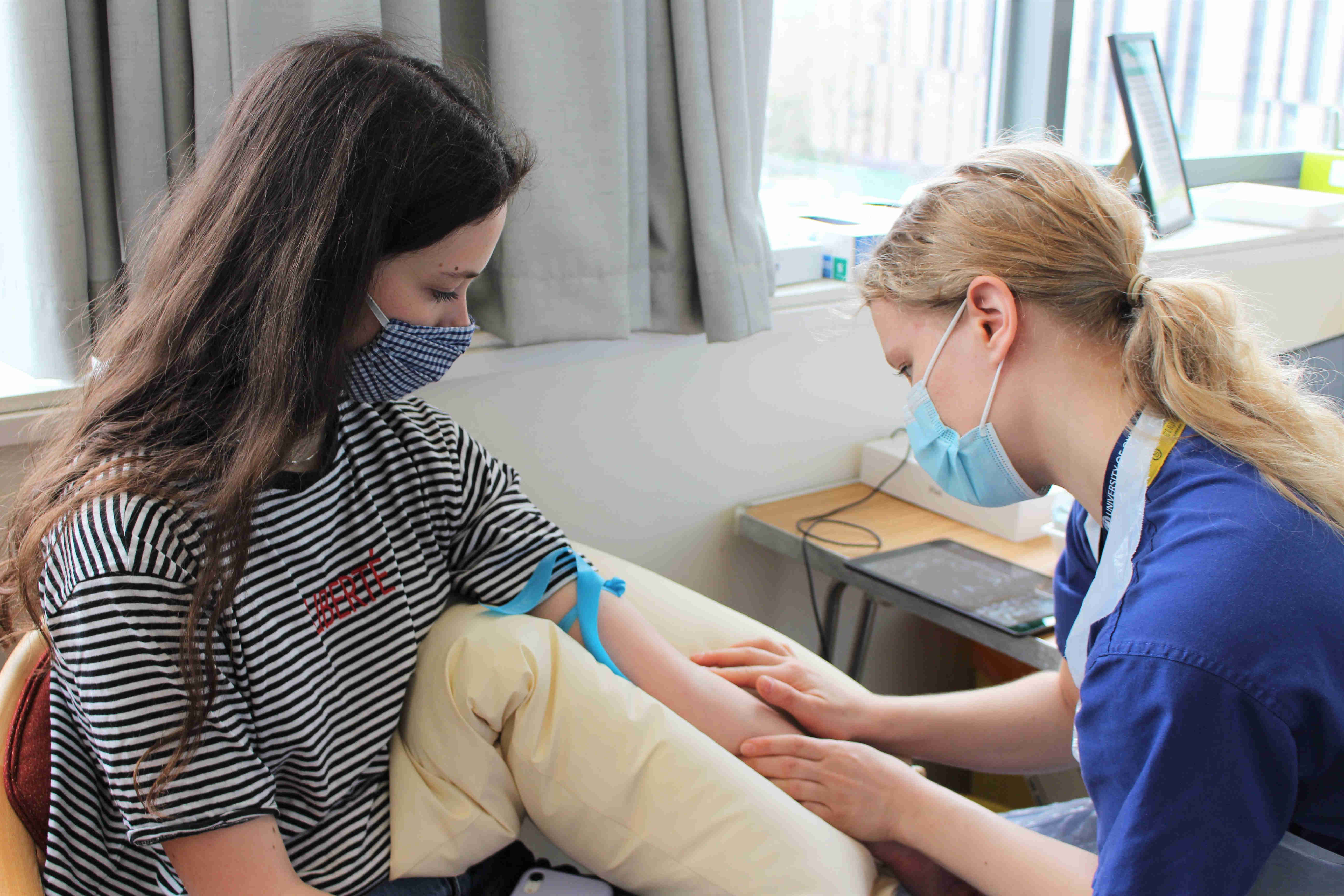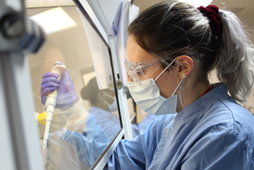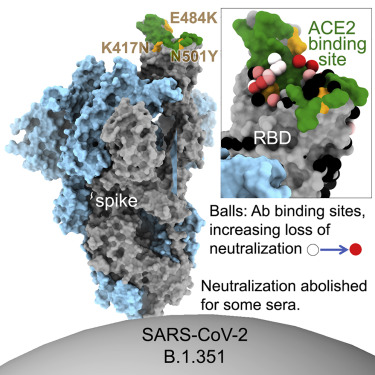LATEST NEWS
Our latest publication looks at whether the immune response to the Pfizer COVID-19 vaccine is different depending on the number of weeks between the two doses.

- We found that for people getting the longer dosing interval, antibodies fell over the 10 weeks after the first dose, but T cell levels were well-maintained. We know that a single dose of vaccine gives significant protection against COVID-19, so T cells may be an important part of the mechanism.
- The long dosing interval resulted in 2x higher neutralising antibodies against all variants of the virus tested, including the Delta variant, compared to the short dosing interval. Absolute numbers of T cells to spike were lower after the long interval compared to the short one, but the T cell response had more characteristics of a helper response promoting long term memory and antibody production.
- Regardless of the dosing schedule, the study found levels of antibodies and T cells varied from person to person, which may depend on genetics, underlying health conditions, and past exposure to COVID-19 and other viruses. This means our study is more relevant at a population level than for individual people, and underlies the importance of everyone getting two doses of the COVID-19 vaccine to maximise their own protection, particularly against Variants of Concern.
Professor Susanna Dunachie from University of Oxford said:
“Our study aimed to shine a light on the different type of immune cells involved to help us better understand the potential mechanisms of protection,
particularly against new Variants of Concern. It is clear from our findings that to maximise your individual protection, it is very important to get two
doses of the COVID vaccine when offered”.
Our grateful thanks go to all the healthcare workers who volunteered to take part in this study. Click here to read the pre-print with additional figures and methods here.
The latest work from the PITCH study looks at the trajectory of the immune response to SARS-CoV-2 after COVID-19 infection. .

Using SIMON, researchers identified an early immune signature associated with durable and protective immunity against SARS-CoV-2. Both, cellular and humoral immune responses mounted one month after infection were identified to be important for maintenance of immunity 6 months after infection. Moreover, those individuals were also better able to neutralise both the Victoria strain, and alpha and beta variants of concerns. On the other hand, those that were identified as low responders showed a reduction in the capacity to neutralise the Victoria strain, with a severe loss of neutralisation against both VOC. All the data in this paper combined tells us that immune events primed during early SARS-CoV-2 infection may define the subsequent trajectories leading to the effective maintenance or loss of long-term T and B cell immune memory. Importantly, maintenance of immune memory over time is critically required for effective neutralisation of variants of concern.
Professor Eleanor Barnes from University of Oxford said:
"Gaining a detailed understanding of the immune response after COVID-19 infection is critical in allowing us to reduce reinfection,
tackle variants and to helping us to design future vaccination strategies. "
Click here to read the pre-print with additional figures and methods here
PITCH study finds strong immune response following first dose of COVID-19 vaccination.

Click here for the full article
Evidence of escape of SARS-CoV-2 variant B.1.351 from natural and vaccine-induced sera.

RECENT PUBLICATIONS
See all publications here
Immunogenicity of standard and extended dosing intervals of BNT162b2 mRNA vaccine.
View full article: https://doi.org/10.1016/j.cell.2021.10.011
T-Cell and Antibody Responses to First BNT162b2 Vaccine Dose in Previously SARS-CoV-2-Infected and Infection-Naive UK Healthcare Workers: A Multicentre, Prospective, Observational Cohort Study.
View full article: https://doi.org/10.1016/S2666-5247(21)00275-5
Two doses of SARS-CoV-2 vaccination induce more robust immune responses to emerging SARS-CoV-2 variants of concern than does natural infection.
View full article: https://doi.org/10.1038/s41467-021-25167-5
Divergent trajectories of antiviral memory after SARS-CoV-2 infection
View full article: https://doi.org/10.1038/s41467-022-28898-1
T cell assays differentiate clinical and subclinical SARS-CoV-2 infections from cross-reactive antiviral responses.
View full article: https://doi.org/10.1038/s41467-021-21856-3
T-Cell and Antibody Responses to First BNT162b2 Vaccine Dose in Previously SARS-CoV-2-Infected and Infection-Naive UK Healthcare Workers: A Multicentre, Prospective, Observational Cohort Study.
View full article: https://papers.ssrn.com/sol3/papers.cfm?abstract_id=3812375
Evidence of escape of SARS-CoV-2 variant B.1.351 from natural and vaccine-induced sera.
View full article: https://www.sciencedirect.com/science/article /pii/S0092867421002269
Reduced neutralization of SARS-CoV-2 B.1.1.7 variant by convalescent and vaccine sera.
View full article: https://www.sciencedirect.com/science/article /pii/S0092867421002221
Vaccine-induced immunity provides more robust heterotypic immunity than natural infection to emerging SARS-CoV-2 variants of concern.
View full article: https://www.researchsquare.com/article/rs-226857/v1